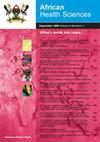Experiences of female clients in the assisted reproductive technology process in Nigeria
IF 0.9
4区 医学
Q3 MEDICINE, GENERAL & INTERNAL
引用次数: 0
Abstract
Background: Though assisted reproductive technology (ART) has been a source of hope for many infertile couples, it is knownto be associated with physical, social, psychological, and ethical challenges in different settings. Objective: The study objective was to explore the experiences of female clients who accessed services in ART clinics in Nigeria. Methods: An exploratory qualitative design, using snowballing technique was employed. It involved in-depth interviews of eightwomen who had gone through the assisted conception process, using an interview guide. Data collection was from November 2019 to January 2020. Results: The age range of the participants was 30 – 52 years with a mean of 41.88 years. Majority of the clients presented at advanced age to their ART providers because of lack of funds and ignorance. Other challenges were suboptimal risk disclosure, high cost of services, feelings of shame and stigmatization during and after the process. Conclusion: Cost of ART remain unaffordable to most Nigerians hence the need for government subsidization and in-corporation of ART services into the National Health Insurance Scheme. Additionally, lack of adequate information disclosure, shared decision-making and gendered suffering are areas of great concern among the study participants. A national regulatory guideline will ensure uniform international standard of care. Keywords: Experience; clients; assisted reproductive technology.尼日利亚女性客户在辅助生殖技术过程中的经历
背景:尽管辅助生殖技术(ART)为许多不孕不育夫妇带来了希望,但众所周知,在不同的环境下,该技术会带来生理、社会、心理和伦理方面的挑战。 研究目的本研究旨在探讨尼日利亚接受辅助生殖技术诊所服务的女性客户的经历。 研究方法采用探索性定性设计,使用滚雪球技术。研究使用访谈指南对 8 名经历过辅助受孕过程的女性进行了深入访谈。数据收集时间为 2019 年 11 月至 2020 年 1 月。 研究结果参与者的年龄在 30 - 52 岁之间,平均年龄为 41.88 岁。由于缺乏资金和无知,大多数患者都是在高龄时向抗逆转录病毒疗法提供者求助的。其他挑战还包括风险披露不够理想、服务费用高昂、过程中和过程后感到羞耻和耻辱。 结论大多数尼日利亚人仍然负担不起抗逆转录病毒疗法的费用,因此需要政府提供补贴,并将抗逆转录病毒疗法服务纳入国家医疗保险计划。此外,缺乏充分的信息披露、共同决策和性别痛苦也是研究参与者极为关注的问题。国家监管指南将确保国际统一的护理标准。 关键词经验;客户;辅助生殖技术。
本文章由计算机程序翻译,如有差异,请以英文原文为准。
求助全文
约1分钟内获得全文
求助全文
来源期刊

African Health Sciences
MEDICINE, GENERAL & INTERNAL-
CiteScore
2.30
自引率
0.00%
发文量
179
审稿时长
>12 weeks
期刊介绍:
The African Health Sciences is an internationally refereed journal publishing original articles on research, clinical practice, public health, policy, planning, implementation and evaluation, in the health and related sciences relevant to Africa and the tropics. Its objectives are to: Advocate for and promote the growth of reading culture in sub Saharan Africa; Provide a high quality journal in which health and policy and other researchers and practitioners in the region can and world wide, can publish their work; Promote relevant health system research and publication in the region including alternative means of health care financing, the burden of and solution of health problems in marginalized urban and rural communities amongst the displaced and others affected by conflict; Promote research and the systematic collection and collation and publication of data on diseases and conditions of equity and influence; Promote development of evidence-based policies and guidelines for clinical, public health and other practitioners. African Health Sciences acknowledges support provided by the African Health Journals Partnership Project that is funded by the US National Institutes of Health (through the National Library of Medicine and the Fogarty International Center) and facilitated by the Council of Science Editors.
 求助内容:
求助内容: 应助结果提醒方式:
应助结果提醒方式:


